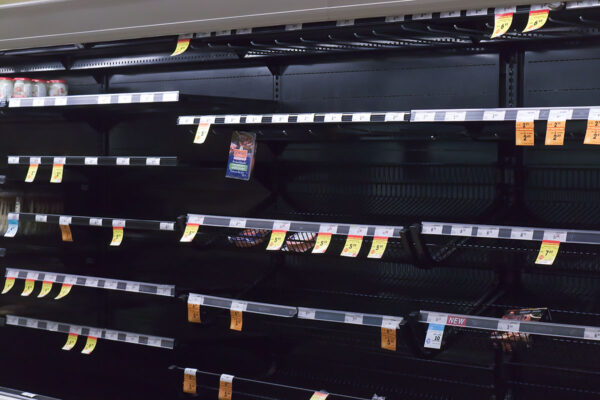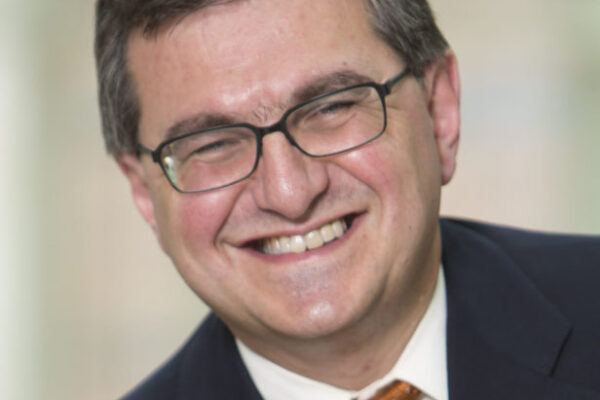The vexing vax supply chain
The cold, hard fact is: Pfizer blazed a trail in creating a touted COVID-19 vaccine, but now it must help to equally pioneer an unprecedented way to distribute the drug across the United States and the globe, says a supply chain expert at Washington University in St. Louis.
Boeing Center, Olin faculty behind special edition journal, recent research
Academics who assembled at Olin Business School at Washington University in St. Louis offered such relevant presentations, research and ideas — a full nine months before a pandemic derailed, if not stymied, global operations — that it produced a special edition in scholarship: how to pay for production and distribution today and manage global risks in a highly uncertain environment. Supply Chain Finance and Fin Tech Innovations was published Oct. 1 as the 14th volume of Foundations and Trends in Technology, Information and Operations Management.
Supply chain works better if you previously worked, studied together
Xiumin Martin from the Olin Business School at Washington University in St. Louis was among four researchers who crunched data to find that personal connections between suppliers and vendors particularly improves the efficiency of the supply chain. To be precise, such rapport results in better overall performance, less restrictive and longer-lasting contract terms, and crystallized communication.
Coronavirus far greater threat than SARS to global supply chain
Panos Kouvelis, who teaches and helped to popularize the Waffle House Index regarding natural-disaster responses, says the outbreak’s impact on global supply chains promises to be two times worse than when the SARS virus emerged in 2002 in China.
Expert advises automakers to take it slow on road to recovery
GM releases its first quarterly results post-bankruptcy on Nov. 16. U.S. auto sales in October equaled an annualized rate of 10 million vehicles. That’s a steep drop from the 17 million cars sold each year from 1991-2007. Not even a robust recovery from the recession is expected to boost sales near previous highs. Bailouts, bankruptcies and cash for clunkers have helped keep the industry afloat this year. Yet, the reality of too many factories and workers remains as demand continues to dip. Supply chain expert Panos Kouvelis says auto makers need to keep the brakes on production and proceed with caution. Video available.
Managing the supply chain
If it is a surprise to Gap Inc. that some of its clothing manufactured in India was made by young children, then the company didn’t do a thorough job investigating the pros and cons of international outsourcing, according to Panos Kouvelis, the Emerson Distinguished Professor of Operations and Manufacturing Management at the Olin Business School at Washington University in St. Louis.
Product recalls need not be a company’s downfall
Mattel and Ford are just the latest in a long line of companies to enact a product recall. Whether it’s lead paint or tainted dog food, every manufacturer faces the potential that its product needs to be taken off the shelf. How a firm handles its logistics and marketing after and before a recall can make or break a company’s success in the long run.
Earnings statements can trigger reactions in a company’s supply chain
When good fortune smiles on a company, the stock market responds by valuing the firm more favorably. It’s well known that good news for one firm means other companies in the same industry will be affected as well. But a business professor at Washington University in St. Louis says we can also anticipate a predictable connection between news announcements of a company and its suppliers or customers.
Globalization forces companies to align financial and operational departments, WUSTL professor says
In the global economy, running a business is especially risky when finance and operations are ignorant of the other’s business. The risk factors go beyond the usual challenges of matching supply and demand to include unanticipated commodity price shocks, volatile exchange rates, and unexpected supply disruptions as a result of forces beyond our controls, such as physical disasters and terrorist attacks. Rather than let companies discover the perils the hard way, Professor Panos Kouvelis of the Olin School of Business at Washington University in St. Louis is spearheading efforts in academia to create models of how finance and operations can work together to achieve maximum success.
Right mix in product line design increases profits for the firm
KouvelisDetermining the right mix of products to offer in the marketplace has long been considered the purview of a firm’s marketing team. Research conducted by Panos Kouvelis, Ph.D., a professor of operations and manufacturing at the Olin School of Business at Washington University in St. Louis, reveals that operational implications of product line decisions are not to be overlooked. Kouvelis shows that integrating marketing strategies with manufacturing and supply chain efficiencies serves to maximize profitability. His model for product line selection accounts for both diverse customer preferences and manufacturing costs that vary with product line composition.




